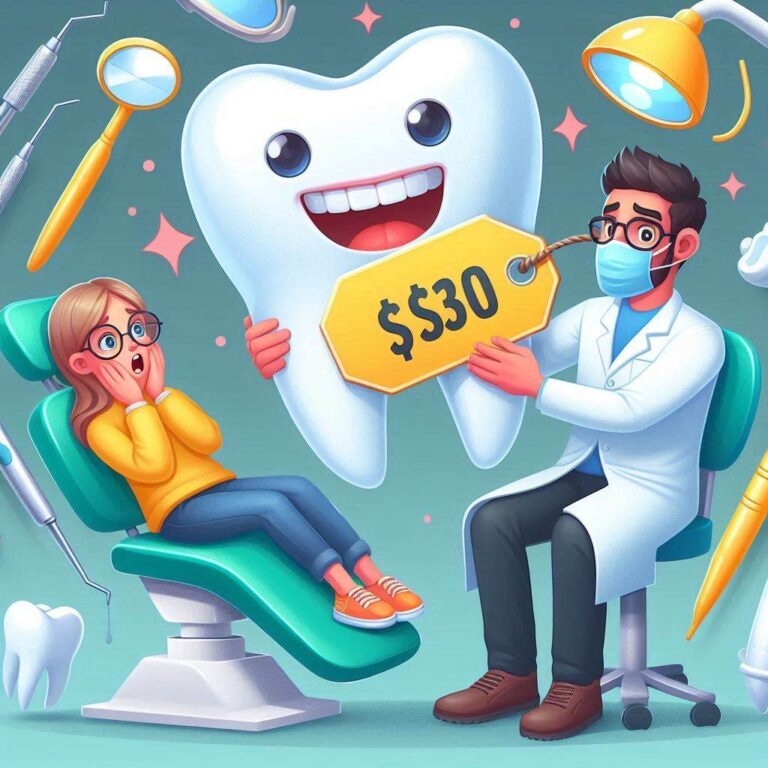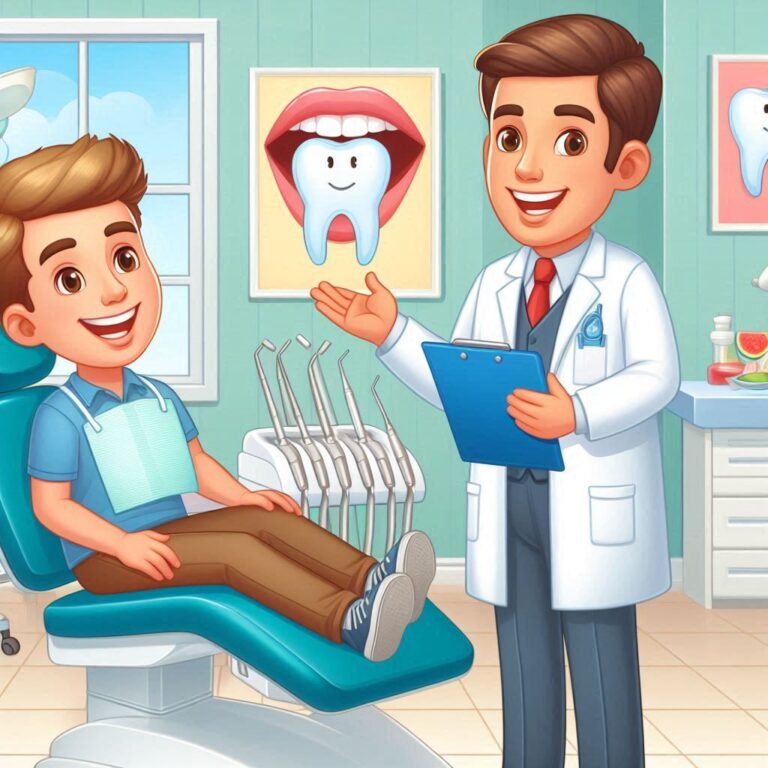Baby Tooth Extraction Cost
Baby Tooth Extraction Cost Without Insurance
When it comes to dental care, one of the most common procedures for children is baby tooth extraction. While baby teeth are meant to fall out naturally, there are instances where extraction becomes necessary. Understanding the cost of this procedure, especially without insurance, is crucial for parents planning their child’s dental care.

Why Baby Tooth Extraction?
Baby teeth, also known as primary teeth, play a significant role in a child’s oral development. They help in chewing, speaking, and holding space for permanent teeth. However, there are situations where extraction is necessary:
- Severe Decay: When a baby tooth is severely decayed and cannot be restored with a filling or crown.
- Infection: If an infection has spread to the pulp of the tooth, extraction may be required to prevent further complications.
- Orthodontic Reasons: Sometimes, baby teeth are extracted to make room for permanent teeth, especially in cases of overcrowding.
- Trauma: If a baby tooth is damaged due to an accident or injury, extraction might be the best option.
Cost Factors
The cost of baby tooth extraction without insurance can vary widely based on several factors:
- Geographic Location: Dental costs can vary significantly depending on where you live. Urban areas tend to have higher costs compared to rural areas.
- Dentist’s Experience: More experienced dentists may charge higher fees for their services.
- Complexity of the Extraction: Simple extractions are less expensive than surgical extractions, which may require anesthesia and more advanced techniques.
- Additional Procedures: If the extraction requires additional procedures like X-rays or sedation, the cost will increase.
Average Cost
On average, the cost of a simple baby tooth extraction without insurance ranges from 75to75to200 per tooth. However, if the extraction is more complex or requires surgical intervention, the cost can go up to 300to300to600 per tooth.
Payment Options
For parents without insurance, there are several payment options to consider:
- Payment Plans: Many dental offices offer payment plans that allow you to spread the cost over several months.
- Dental Discount Plans: These plans offer discounted rates on dental procedures for a monthly or annual fee.
- Community Health Clinics: Some community health clinics offer dental services at reduced costs or on a sliding scale based on income.
Baby Tooth Extraction in Adults
While baby tooth extraction is commonly associated with children, there are cases where adults may need to have a baby tooth extracted. This situation is relatively rare but can occur due to various reasons.
Why Do Adults Retain Baby Teeth?
In some cases, adults retain one or more baby teeth because the permanent tooth never developed or failed to erupt. This condition is known as hypodontia. Other reasons include:
- Impacted Teeth: If a permanent tooth is impacted and unable to push the baby tooth out, the baby tooth may remain in place.
- Genetic Factors: Some individuals are genetically predisposed to retain baby teeth.
- Trauma or Injury: Trauma to the jaw or teeth can sometimes result in the retention of baby teeth.
Complications of Retained Baby Teeth
Retaining baby teeth into adulthood can lead to several complications:
- Misalignment: Retained baby teeth can cause misalignment of the surrounding teeth, leading to bite issues.
- Decay and Infection: Baby teeth are not as strong as permanent teeth and are more prone to decay and infection.
- Aesthetic Concerns: Retained baby teeth can affect the appearance of your smile, leading to self-esteem issues.
Cost of Baby Tooth Extraction in Adults
The cost of extracting a retained baby tooth in adults is generally higher than in children due to the complexity of the procedure. On average, the cost ranges from 200to200to600 per tooth, depending on the factors mentioned earlier.
Procedure for Adults
The procedure for extracting a baby tooth in adults is similar to that in children but may require more advanced techniques, especially if the tooth is deeply rooted or if there are complications like impacted teeth. The dentist may use local anesthesia, sedation, or even general anesthesia, depending on the complexity of the case.
Baby Tooth Extraction Cost Estimate
Understanding the cost of baby tooth extraction can help parents and adults plan for the procedure. Below is a detailed cost estimate based on various factors.
Simple Extraction vs. Surgical Extraction
- Simple Extraction: This is the most common type of extraction, where the tooth is visible and can be removed with forceps. The cost ranges from 75to75to200 per tooth.
- Surgical Extraction: This is required when the tooth is not easily accessible, such as when it is broken off at the gum line or impacted. The cost ranges from 300to300to600 per tooth.
Additional Costs
- X-Rays: Diagnostic X-rays may be required before the extraction, costing between 25to25to250.
- Anesthesia: Local anesthesia is usually included in the cost, but sedation or general anesthesia can add 100to100to300 to the total cost.
- Follow-Up Visits: Post-extraction check-ups may be necessary, costing between 50to50to100 per visit.
Cost Comparison Table
| Procedure | Average Cost (USD) |
|---|---|
| Simple Extraction | 75−75−200 |
| Surgical Extraction | 300−300−600 |
| X-Rays | 25−25−250 |
| Anesthesia (Sedation) | 100−100−300 |
| Follow-Up Visit | 50−50−100 |
Baby Tooth Extraction Procedure
The procedure for baby tooth extraction is straightforward but requires careful planning and execution to ensure the child’s comfort and safety.
Pre-Extraction Preparation
Before the extraction, the dentist will conduct a thorough examination, including X-rays, to assess the tooth’s condition and plan the procedure. The dentist will also discuss anesthesia options with the parents.
The Extraction Process
- Anesthesia: Local anesthesia is administered to numb the area around the tooth. In some cases, sedation or general anesthesia may be used.
- Tooth Loosening: The dentist uses a tool called an elevator to loosen the tooth from the gum and bone.
- Tooth Removal: Once the tooth is loosened, the dentist uses forceps to remove it from the socket.
- Aftercare: The dentist will provide instructions for post-extraction care, including pain management and oral hygiene.
Post-Extraction Care
Proper aftercare is essential to ensure a smooth recovery. Parents should:
- Monitor for Bleeding: Some bleeding is normal, but if it persists, contact the dentist.
- Manage Pain: Over-the-counter pain relievers can help manage discomfort.
- Maintain Oral Hygiene: Gentle brushing and rinsing with salt water can help keep the area clean.
- Diet: Stick to soft foods and avoid hot or spicy foods for a few days.
Baby Tooth Extraction Cost in the Philippines
The cost of baby tooth extraction in the Philippines is generally lower compared to Western countries, making it an attractive option for both locals and medical tourists.
Average Cost
- Simple Extraction: The cost ranges from ₱500 to ₱1,500 per tooth.
- Surgical Extraction: The cost ranges from ₱2,000 to ₱5,000 per tooth.
Factors Affecting Cost
- Location: Dental clinics in major cities like Manila and Cebu may charge higher fees.
- Dentist’s Experience: More experienced dentists may charge higher fees.
- Clinic Facilities: High-end clinics with advanced facilities may have higher costs.
Payment Options
- Cash Payment: Most clinics accept cash payments.
- Health Cards: Some clinics accept health cards that cover dental procedures.
- Payment Plans: Some clinics offer installment plans for more expensive procedures.
Conclusion
Baby tooth extraction is a common dental procedure that can vary in cost depending on several factors, including the complexity of the extraction, geographic location, and whether or not you have insurance. Understanding these costs and the procedure itself can help parents and adults make informed decisions about their dental care.
FAQs
1. Is baby tooth extraction painful?
- The procedure itself is not painful due to the use of anesthesia, but some discomfort may be felt after the anesthesia wears off.
2. How long does it take to recover from a baby tooth extraction?
- Recovery typically takes a few days, but it can vary depending on the complexity of the extraction.
3. Can I eat after a baby tooth extraction?
- It’s best to wait until the anesthesia wears off and stick to soft foods for the first few days.
4. What should I do if my child’s bleeding doesn’t stop after the extraction?
- Contact your dentist immediately if bleeding persists beyond a few hours.
5. Are there any risks associated with baby tooth extraction?
- Risks are minimal but can include infection, prolonged bleeding, or damage to surrounding teeth.
Additional Resources
- American Dental Association (ADA): www.ada.org
- National Institute of Dental and Craniofacial Research (NIDCR): www.nidcr.nih.gov
- Philippine Dental Association (PDA): www.philippinedentalassociation.org


